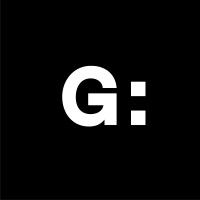预约演示
更新于:2026-01-24
GB-0895
更新于:2026-01-24
概要
基本信息
非在研机构- |
权益机构- |
最高研发阶段临床3期 |
首次获批日期- |
最高研发阶段(中国)- |
特殊审评- |
登录后查看时间轴
关联
3
项与 GB-0895 相关的临床试验NCT07359846
A Phase 3, Randomized, Double-Blind, Placebo-Controlled Study to Assess the Efficacy and Safety of GB-0895 Adjunctive Therapy in Adults and Adolescents With Severe Uncontrolled Asthma
The objective of this study is to assess the potential for GB-0895 treatment to improve the health of adolescents and adults with severe asthma that is uncontrolled by inhaled corticosteroids (ICS) and conventional asthma controllers.
The study details include:
Study treatment: randomized to receive either GB-0895 or placebo administered every 6 months over 52 weeks.
Visit frequency: every 1-2 months after the first month.
The study details include:
Study treatment: randomized to receive either GB-0895 or placebo administered every 6 months over 52 weeks.
Visit frequency: every 1-2 months after the first month.
开始日期2026-01-01 |
申办/合作机构 |
NCT07276724
A Phase 3, Randomized, Double-Blind, Placebo-Controlled Study to Assess the Efficacy and Safety of GB-0895 Adjunctive Therapy in Adults and Adolescents With Severe Uncontrolled Asthma
The objective of this study is to assess the potential for GB-0895 treatment to improve the health of adolescents and adults with severe asthma that is uncontrolled by inhaled corticosteroids (ICS) and conventional asthma controllers.
The study details include:
Study treatment: randomized to receive either GB-0895 or placebo administered every 6 months over 52 weeks.
Visit frequency: every 1-2 months after the first month.
The study details include:
Study treatment: randomized to receive either GB-0895 or placebo administered every 6 months over 52 weeks.
Visit frequency: every 1-2 months after the first month.
开始日期2025-12-01 |
申办/合作机构 |
NCT07116889
A Phase 1 First in Human, Randomized, Double-Blind, Placebo-Controlled, Single Ascending Dose and Multiple Ascending Dose Study to Investigate the Safety, Tolerability, Pharmacokinetics, Pharmacodynamics and Immunogenicity of GB-0895 in Adults With Mild to Moderate Asthma or Single Dose in Chronic Obstructive Pulmonary Disease (COPD)
This study is testing the safety, tolerability, pharmacokinetics and pharmacodynamics of GB-0895.
开始日期2023-12-12 |
申办/合作机构 |
100 项与 GB-0895 相关的临床结果
登录后查看更多信息
100 项与 GB-0895 相关的转化医学
登录后查看更多信息
100 项与 GB-0895 相关的专利(医药)
登录后查看更多信息
122
项与 GB-0895 相关的新闻(医药)2026-01-23
·今日头条
> 在川北医学院附属医院的门诊,医生调出电子病历系统中的AI助理模块,它能在数秒内生成治疗计划与用药建议,使医生诊断决策效率提升30%。这并非孤例,从肺结节AI筛查到全球首款AI设计抗体进入临床试验,人工智能正以前所未有的速度嵌入医疗流程。
然而,效率提升的背后,数据孤岛、算法黑箱与责任归属的模糊地带正在浮现。当政策蓝图铺就规模化路径,技术突破催生商业化拐点时,一个核心问题愈发紧迫:AI在医疗中的边界究竟何在?
1. 政策加速:顶层设计勾勒规模化路径
2025年,国家卫健委等五部门联合发布《关于促进和规范“人工智能+医疗卫生”应用发展的实施意见》,为行业发展设定了清晰的量化目标。
根据文件,到**2027年**,基层诊疗智能辅助、临床专科专病诊疗智能辅助决策需广泛应用;到**2030年**,基层诊疗智能辅助应用基本实现全覆盖,并推动二级以上医院普遍开展医学影像智能辅助诊断、临床诊疗智能辅助决策等应用。
更具体的阶段性目标显示,**2025年**,三级医院AI辅助诊断系统覆盖率目标为80%,二级医院达50%,基层医疗机构达30%。这些指标共同勾勒出AI医疗从试点走向规模化的国家蓝图。
2. 技术渗透:诊断效率与药物研发双突破
在临床一线,AI的价值正通过具体数据被验证。
- **医学影像诊断**:腾讯觅影在肺癌筛查中,敏感度达**98.7%**,对≤5mm微小结节的检出率较人工提升**32%**。全国三甲医院AI影像系统渗透率已超**65%**,平均病灶检出率提升12.6个百分点。
- **医院流程优化**:川北医学院附属医院部署的DeepSeek模型,不仅提升诊断效率,其影像报告质控效率更是提升了**300%**。
- **药物研发**:AI正在颠覆传统研发周期。恒瑞医药利用AI平台,将候选分子筛选周期从传统的**6-12个月大幅缩短至3-4个月**。清华与智源研究院开发的DrugCLIP,实现了药物筛选速度的**百万倍级提升**。

更具里程碑意义的是,全球首款完全由AI设计的抗体药物GB-0895已于2025年12月启动**Ⅲ期临床试验**。

3. 支付破冰:医保收费路径打通商业化瓶颈
技术落地离不开支付端的支持。**2024年**,国家医保局发布《人工智能辅助诊疗服务定价指南(试行)》,明确将AI辅助诊断纳入“新增医疗服务价格项目”,并在辽宁、浙江、广东三省开展按次付费试点,单次AI辅助肿瘤影像分析定价为**80-120元**。
随后在**2025年12月**,国家医保局进一步发布《病理类医疗服务价格项目立项指南(试行)》,将“人工智能辅助诊断”列为病理诊断的扩展项,为其应用彻底理顺收费路径。
市场预测显示,至2030年,全国将有超过**1.2万家医疗机构**接入医保认可的AI辅助诊疗体系,年服务患者量有望突破**8亿人次**。
4. 挑战凸显:数据孤岛、算法黑箱与责任模糊
尽管前景广阔,多重挑战正制约AI医疗的纵深发展。
- **数据流通壁垒**:全国超10万家医疗机构的数据格式与存储标准各异,形成严重孤岛。例如,某西部县域的12家卫生院竟存在**8种不同的数据标准**,导致电子病历无法互通。

- **算法可解释性不足**:研究显示,**78%的医生拒绝使用“完全不可解释”的AI系统**。医生普遍担忧,无法理解AI的决策逻辑将带来误诊风险。
- **责任界定不清**:当前法律体系尚未完全厘清医疗机构、系统开发商及临床使用者之间的权责边界。一旦发生误诊,责任归属成为棘手难题。
5. 边界共识:人在回路中与治理框架构建
面对挑战,厘清应用边界已成为行业共识。核心原则是确保 **“人在回路中”** 。
> 国家传染病医学中心主任张文宏教授明确指出:“现阶段,我旗帜鲜明地反对将人工智能直接嵌入医院电子病历系统的临床决策闭环。”他倡导AI应回归“增强型协作者”本位,所有输出须强制携带“生成标签+置信区间+人工复核提示”。

这一理念已在医疗机构转化为具体规定。川北医学院附属医院构建了多层次保障机制,**明确规定所有AI生成的诊断建议、检查报告或用药方案均需经过主治医师的最终审核**。
专家呼吁构建“临床-技术-法理”三维治理框架,通过临床验证清单、数据治理白皮书及跨学科安全委员会,为AI医疗划定安全运行轨道。
AI医疗的未来,并非替代医生,而是成为其能力的延伸。当政策、技术、支付形成合力,而治理框架为创新划定清晰边界时,这场关乎亿万人健康的变革才能真正行稳致远,让技术回归辅助本质,守护医疗中不可替代的人文温度。
孤儿药临床3期
2026-01-22
·今日头条
> 当地时间1月21日,有“女版巴菲特”之称的凯茜·伍德(Cathie Wood)旗下ARK投资管理公司发布长达100多页的《2026年宏伟构想》报告。报告指出,AI是未来的核心动力源,正加速与区块链、机器人、能源存储和多组学测序四大技术平台融合,这场技术革命可能引领全球实际GDP增长再迈新台阶。
然而,在市场热议“AI泡沫”之际,伍德强调了一个被忽视的领域:医疗保健是AI最被低估的应用。
1. 报告核心:五大技术融合驱动经济增长
报告预测,仅靠资本投资,在颠覆性创新平台的催化下,本世纪可能使**年度实际GDP增长率增加1.9个百分点**,到2030年全球实际GDP增长率将达**7.3%**。
这种增长源于五大技术的相互依赖与促进:例如,可重复使用的火箭将自主移动式AI芯片送入轨道,可能对下一代云的规模化发展至关重要;而AI芯片的增长反过来可能使对可重复使用火箭的需求相较现有模型增加**60倍**。技术融合的“乘数效应”正在重塑经济底层逻辑。
2. 技术融合案例:从医疗到工业的落地应用
在医疗领域,AI与多组学测序结合,正改变药物研发和诊断。例如:

- **药物研发加速**:AI驱动可将药物上市时间从**13年缩短到8年**,总成本降低**4倍**,从24亿美元降至6亿美元。
- **癌症诊断提升**:通过AI预言机与零知识证明技术,复旦大学附属医院的癌症诊断准确率提升至**92%**。
- **液体活检筛查**:一次血液检测可同时筛查多种癌症,潜在市场规模达**2400亿美元**。
在工业领域,AI与机器人、能源存储融合,已实现规模化应用:
- **智能质检**:华为昇腾AI质检在富士康光伏控制器产线,月检超6000台,准确率超**99%**。
- **能耗优化**:西门子利用AI数字孪生技术,帮助工厂减少**50%**的能源相关排放。
- **能源管理**:果下科技的“源-网-荷-储”一体化AI调控引擎,实现毫秒级负荷预测与智能调度,提升新能源利用效率。

3. 反驳AI泡沫论:成本暴跌与估值冷静
针对“AI泡沫”担忧,报告用数据反驳。**AI推理成本在过去一年中下降了99%以上**,训练成本也以每年约**75%**的速度降低。成本暴跌推动了AI原生应用的普及,需求呈爆炸式增长。
估值方面,当前美股科技巨头中的“Mag 6”市盈率约为**40倍**,远低于90年代互联网泡沫时期超过**100倍**的峰值。伍德认为:“**AI泡沫还在很多年后**”。
4. 医疗保健:AI最被低估的深刻应用
伍德在CNBC采访中强调:“我们的身体中有37万亿个细胞,它们都将被测序以寻找治疗方法。我认为AI最被低估的应用是医疗保健”。报告详细阐述了其价值:
- **治愈性药物价值**:可能是典型药物的**20倍**,是可缓解疾病的慢性处方药的**2.4倍**。
- **专利延长效应**:AI方法可将开发时间缩短2-5年,使药物知识产权价值提升**30%-80%**。
- **临床进展**:全球首款完全由AI设计的抗体药物GB-0895已进入III期临床试验;国内剂泰科技的AI药物MTS-004也完成III期临床试验。
她的旗舰基金ARK Innovation ETF(ARKK)已布局医疗AI赛道,持有Recursion、Crispr Therapeutics等公司。Recursion借助AI技术使研究人员平均提出假设的数量增加了**10倍**。
5. 未来展望:2026年的AGI与全球经济拐点
报告预测,**AGI(通用人工智能)最快可能在2026年出现**。技术融合将推动生产力提升,非农生产率增速可能达**4%–6%**,进一步压低单位劳动力成本。

随着AI与机器人、区块链、能源存储和多组学测序的深度融合,从自动驾驶出租车到精准医疗,这些“科幻场景”正加速成为现实。伍德的构想并非空中楼阁,而是基于成本下降、应用落地和宏观经济数据的理性分析。技术融合的浪潮,或将定义下一个十年的全球增长轨迹。
2026-01-21
·脉联湾
每年年初的摩根大通全球医疗健康大会(JPM),都是全球医药产业的“风向标”。2026年这场盛会,AI医药无疑成为绝对主角——从英伟达与礼来的10亿美元豪赌,到谷歌、辉瑞的战略加码,再到中国创新力量的韧性布局,科技巨头与制药龙头的跨界融合,正宣告AI医药从“概念验证”迈入“规模化落地”的关键拐点。这场变革不仅重塑着全球医药行业的竞争格局,更悄然改变着普通人的医疗福祉。巨头竞逐:国内外AI医药布局进入“深水区”
本届JPM大会上,科技巨头与制药企业的合作不再是“浅尝辄止”的工具赋能,而是深入产业链核心的战略绑定,国内外玩家纷纷亮出重磅布局,勾勒出AI医药的产业图谱。国际巨头:算力、数据与制药的全链融合
最震撼行业的莫过于英伟达与礼来的“世纪合作”。双方宣布投资10亿美元,耗时5年在旧金山湾区共建AI制药实验室,这一投入相当于一款传统新药的平均研发成本,标志着合作从“远程协同”升级为“贴身作战”。英伟达凭借Blackwell架构超算与BioNeMo平台,提供海量算力与定制化AI模型,礼来则开放百年临床数据与湿实验室资源,实现“实验-数据生成-AI优化”的闭环,目标直指药物研发全流程的效率革命。
跨界协同已成潮流:谷歌云与诺华扩大合作,将AI工具应用于药物安全性预测与临床试验患者招募;辉瑞将AI纳入年度核心战略,不仅靠AI削减56亿美元运营支出,更计划在2026年底前借助AI驱动启动10项III期临床试验,应对专利悬崖挑战。此外,Illumina发布“十亿细胞图谱”,联合阿斯利康、默克等药企构建全球最大全基因组扰动数据集,为AI模型训练提供高质量数据基石,筑牢产业上游壁垒。中国力量:从“出海跟风”到“差异化突破”
面对复杂的国际环境,中国头部企业展现出极强的战略韧性。百济神州实现国际化进阶,其泽布替尼2025年全球销售额突破55亿美元,成为首个登顶全球同类药物榜首的中国原研药,背后离不开AI在临床数据优化中的支撑;传奇生物与强生合作的Carvykti,凭借AI辅助的靶点验证技术,在多发性骨髓瘤治疗中交出优于标准疗法的III期数据,巩固全球靶点优势。
CXO行业头部效应加剧,药明康德、药明生物推进“全球双厂区”战略,将AI技术融入欧美本地化生产流程,应对供应链区域化需求;国内101家AI制药企业中,英矽智能、剂泰科技等平台型公司,聚焦靶点发现、化合物筛选等核心环节,与国内药企形成协同,构建自主技术生态。行业变革:AI重构医药产业的底层逻辑
巨头的密集布局,正推动全球医药行业从资本驱动的“广撒网”时代,迈入AI驱动的“精耕细作”时代,三大变革趋势愈发清晰。研发范式升级:从“经验试错”到“工程化设计”
传统新药研发平均耗时超10年、成功率仅10%,AI技术正破解这一痛点。通过靶点发现、化合物筛选、ADMET预测三大核心环节的赋能,AI将药物研发从“大海捞针”变为“精准导航”——清华大学DrugCLIP平台将虚拟筛选速度提升至传统方法的百万倍,AI让靶点验证准确率提升40%,Recursion Pharmaceuticals的AI新药REC-001在IIa期临床中实现患者生物标志物平均下降40%,成为首款AI发现并完成概念验证的药物。资本流向重构:聚焦硬核技术与数据资产
2025年全球医疗健康风投总额虽同比回落18%,但AI药物发现领域获得创纪录42亿美元专项融资,占生物科技总融资额近20%。资本不再盲目追逐热门靶点,而是聚焦拥有高质量数据平台、差异化AI技术的企业,“数据资产”成为新估值核心,Tempus等手握结构化临床数据的公司展现出更强估值韧性,行业洗牌加速,小散企业逐渐被淘汰,规模化协同成为主流。监管与支付体系适配:为AI落地铺路
政策层面正主动适配AI医药发展,FDA宣布启动“加速肿瘤学评估试点项目”,利用AI工具将部分肿瘤药物审评时间缩短30%;美国CMS推出细胞疗法“基于疗效”的支付模式,倒逼企业用AI优化临床试验终点设计。监管与支付的正向引导,为AI医药从实验室走向市场打通了关键通道。民生福祉:AI医药让“更好医疗”触手可及
巨头布局与行业变革的最终落脚点,是让普通人享受到更高效、普惠、精准的医疗服务,这些改变已逐步显现。新药更快上市,罕见病患者迎来希望
AI大幅缩短研发周期、降低成本,让更多冷门靶点、罕见病药物从“无利可图”变为“可落地项目”。全球首款完全由AI设计的抗体药物GB-0895已启动III期临床试验,用于治疗严重哮喘,未来这类AI新药将持续涌现,惠及肿瘤、神经退行性疾病等领域患者,打破“无药可用”的困境。诊疗更精准高效,医疗成本逐步降低
AI不仅赋能药物研发,更渗透临床诊疗全流程:知识图谱技术让医生快速整合疾病、药物、基因数据,提升诊断准确率;代理式AI实现医疗理赔全自动化,Waystar的AI模型将首次理赔接受率提升至近99%,减少医疗机构运营成本,最终有望传导至患者端,缓解“看病贵”压力。个性化医疗普及,告别“一刀切”治疗
随着AI对基因测序、蛋白质组学数据的深度解析,个性化医疗正从概念走向现实。AI可根据患者基因特征、身体状况定制治疗方案,比如在肿瘤治疗中精准匹配药物与患者,提升疗效的同时减少副作用,让医疗服务从“通用型”转向“量身定制”。脉联观点:AI医药的黄金时代,才刚刚开启
本届JPM大会上,英伟达与礼来的10亿美元合作,与其说是一次跨界豪赌,不如说是行业对AI医药的集体共识。科技巨头的算力与算法,正在激活制药行业的百年积淀,推动产业实现质的飞跃。对于行业而言,这是一场关乎生死的转型竞赛;对于普通人而言,这是一场惠及全民的医疗革命。
当AI成为医药研发的“基础设施”,当精准医疗成为常态,我们有理由期待,未来的医疗将更高效、更普惠、更具温度。而这场变革,才刚刚拉开序幕。
临床3期
100 项与 GB-0895 相关的药物交易
登录后查看更多信息
研发状态
10 条进展最快的记录, 后查看更多信息
登录
| 适应症 | 最高研发状态 | 国家/地区 | 公司 | 日期 |
|---|---|---|---|---|
| 重度哮喘 | 临床3期 | 美国 | 2025-12-01 | |
| 慢性阻塞性肺疾病 | 临床1期 | 美国 | 2023-12-12 | |
| 慢性阻塞性肺疾病 | 临床1期 | 德国 | 2023-12-12 | |
| 慢性阻塞性肺疾病 | 临床1期 | 英国 | 2023-12-12 |
登录后查看更多信息
临床结果
临床结果
适应症
分期
评价
查看全部结果
| 研究 | 分期 | 人群特征 | 评价人数 | 分组 | 结果 | 评价 | 发布日期 |
|---|
No Data | |||||||
登录后查看更多信息
转化医学
使用我们的转化医学数据加速您的研究。
登录
或

药物交易
使用我们的药物交易数据加速您的研究。
登录
或

核心专利
使用我们的核心专利数据促进您的研究。
登录
或

临床分析
紧跟全球注册中心的最新临床试验。
登录
或

批准
利用最新的监管批准信息加速您的研究。
登录
或

生物类似药
生物类似药在不同国家/地区的竞争态势。请注意临床1/2期并入临床2期,临床2/3期并入临床3期
登录
或

特殊审评
只需点击几下即可了解关键药物信息。
登录
或

生物医药百科问答
全新生物医药AI Agent 覆盖科研全链路,让突破性发现快人一步
立即开始免费试用!
智慧芽新药情报库是智慧芽专为生命科学人士构建的基于AI的创新药情报平台,助您全方位提升您的研发与决策效率。
立即开始数据试用!
智慧芽新药库数据也通过智慧芽数据服务平台,以API或者数据包形式对外开放,助您更加充分利用智慧芽新药情报信息。
生物序列数据库
生物药研发创新
免费使用
化学结构数据库
小分子化药研发创新
免费使用
